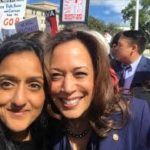Check out the website: https://lenspoliticalnotes.com Look at the recent Political Notes and Len’s Letters on the website. Political Note #349 Joe Biden’s White House at the Highest Level, Political Note #350 Joe Biden’s White House, Domestic Issues
Political Note #352 Joe Biden’s Justice
2021 Governing
Joe Biden and the Department of Justice
Joe Biden announced his top four figures at the Justice Department all in one swoop. It was like a breath of fresh air, a glass of water when you’re parched, a promise of justice when injustice was the rule.
Attorney General

Merrick Garland
Democrats have felt aggrieved. Mitch McConnell’s refusal to hold a hearing to consider Barack Obama’s March, 2016 nomination of Merrick Garland to the US Supreme Court has not been forgotten five years later. McConnell’s cynical refusal based on a claim that an appointment should not be made in the final year of a President’s term was highlighted by the McConnell-led Senate’s confirmation of Amy Comey Barrett’s October 31st 2020 nomination to the Supreme Court (four days before the Presidential election) by Donald Trump.
The grievance is particularly strong because Merrick Garland was the candidate for the Supreme Court who Republicans thought a Democratic President should nominate. Garland is a centrist. His decisions, while on the United States Court of Appeals for the District of Columbia Circuit have been seen as generally pro-prosecution in criminal cases (He is a former prosecutor.), pro-business (He is a former corporate attorney.), pro-government agency, and pro-first amendment rights.
Centrist that Garland is, favorite Democratic judge among Republicans that Garland may be, 2016 was the second time that Mitch McConnell blocked Garland’s appointment to a Court. Mitch McConnell initially blocked his appointment to the US Appeals Court for the District of Columbia Circuit to replace a long-time friend and mentor, Abner Mikva. Nominated in September, 1995, McConnell argued that twelve was enough, the Circuit did not need thirteen judges. After Bill Clinton won reelection in 1996, he re-nominated Merrick Garland who was confirmed by the Senate in March, 1997. Senators Mitch McConnell, Jeff Sessions, and Chuck Grassley where among those who voted “No.”
Merrick Garland was summa as an undergraduate at Harvard, magna getting his JD at Harvard. At least one summer, he worked for Congressman Abner Mikva, who represented his home district. He clerked for Judge Henry Friendly of the Second Circuit and Justice William Brennan at the Supreme Court. He was a special assistant to Attorney General Benjamin Civiletti and worked in private practice at Arnold and Porter. He served as an assistant US Attorney and as an assistant and then deputy associate attorney general. In that last role, he supervised domestic terrorism cases including the Oklahoma City bombing and the Unabomber case. While Chief Judge of the DC Circuit, new rules were adopted regarding sexual harassment.
Merrick Garland’s nomination as Attorney General is a reminder of Mitch McConnell’s cynicism and retrograde view of the law. It appears that Joe Biden held off on the nomination until it was clear that Democrats would have a majority in the Senate and Mitch McConnell could not again block a Garland nomination.
Merrick Garland is Jewish and from Chicago. His grandparents were from Eastern Europe. His mother was the volunteer coordinator for the Council for Jewish Elderly; his father ran a small business from their home. His wife’s grandfather was a trial court judge in New York and also a special counsel to Presidents Franklin Delano Roosevelt and Harry Truman.
Deputy Attorney General

Lisa Monaco
Dr. Doom. President Barack Obama called her that. Every morning, as Homeland Security Advisor, she and the rest of the President’s national security cabinet would meet. Invariably, because of her role, she would have bad news. If she showed up at the President’s office at another time of day, the news was worse. She was, after all, Dr. Doom.
Lisa Monaco is from Newton, Massachusetts. Daughter of a medical doctor who was a pioneer in organ transplant surgery, her mother was a medical secretary. Her father was the son of Italian immigrants. Her mother was a daughter of “flinty” New Englanders. Her mother’s love of learning led her to an adult BA at Harvard and roles such as a trustee at the Belmont Hill Prep School. Lisa Monaco made a trip that was the reverse of Merrick Garland’s. After her BA from Harvard and a stop in DC, she earned her JD from The University of Chicago.
During what I have been calling the interregnum of the Trump administration, while in private practice and a distinguished fellow at the NYU Center on Law and Security, she was interviewed on MSNBC. The interviewer threatened to list all the jobs she had had. “Please don’t,” she responded. Instead, he reviewed highlights.
That review is a summary of how she became a kind of non-military personification of national and homeland security for the United States. Mostly, her work was in the Justice Department itself. She had done an internship in the Justice Department when Janet Reno was Attorney General. Monaco admired Reno’s capacity to balance the policy role and the independent prosecutorial role of the Attorney General. Monaco also took as a model Reno’s persistence in thanking those who helped her.
Returning from a stint as an Assistant US Attorney where she was integral to the Enron prosecution, Monaco became First Counsel and then Chief of Staff to FBI Director Robert Mueller. In the extended interview she argued the importance of the FBI retaining its comprehensive role rather than being divided, as had been considered, into two parts like the British MI5 and MI6. She valued the efficiency of the use of resources and the greater constraint that exists by virtue of the combined roles on improper domestic intelligence gathering. She noted the FBI’s rejection of participation in post 9/11 “enhanced interrogation.”
She crossed the street, literally, to work on national security in the Justice Department and later was appointed by President Obama as Assistant Attorney General for national security – a new litigating division for the Department. The Division combined counterterrorism, counterintelligence, intelligence, and new work on cybersecurity. This was a group of public servants, she explained. Although she had been in the Justice Department for years, as Assistant Attorney General, she was a political appointee, the only political appointee in the division. From there, she was appointed to the position she held to the end of the Obama Presidency – Homeland Security Advisor to the President.
Not irrelevant to the world we face, as Homeland Security Advisor she managed the United States’ response to Ebola, coordinating efforts to ensure the disease would not spread.
In her role as Homeland Security Advisor, she returned to Massachusetts to speak. One of her annual childhood experiences was watching the Boston marathon with one or more of her brothers every year. The race occurs on Patriot’s Day, a school and public holiday in Massachusetts and goes through Newton. Her twin brother was a spectator at the race in 2013 – the day of the Marathon bombing. She spoke at nearby Harvard at a one year commemoration of the bombing.
Associate Attorney General

Vanita Gupta
We know Joe Biden is a Centrist. We can see a theme of hiring Centrists as chiefs in various departments, including Justice. (Consider it a theme and variations, for it is not always the case.) When the chief is a Centrist, the theme appears to call for hiring people who are left of center as subordinates, even very high-level subordinates as is the case with Vanita Gupta. What Joe Biden appears to want – from the subordinates and the chiefs – is a combination of a commitment to principle and a capacity to work well with others,
Vanita Gupta has both of these qualities. A colleague of hers described her as gifted in finding common ground without giving up principle. The colleague was from the ACLU, where Gupta defined her career.
Vanita Gupta is from the Philadelphia suburbs, daughter of immigrants from India. She graduated magna from Yale, received her JD from NYU. Her drive to oppose mistreatment based on identity began with an experience in a McDonald’s, a McDonald’s in the UK. She and her parents (when her father was working temporarily in the UK) were at the restaurant sitting near a table of skinheads who flipped food at them, called them Pakis, and told them to go back to where they came from. The family left the restaurant. The memory never left Vanita Gupta.
Her career began with Tulia, Texas. In her first case for the ACLU, she negotiated release from jail for 46 Blacks and Latinos unjustly convicted of drugs crimes based on the unreliable testimony of a lone, local undercover agent. As a staff attorney, she won cases against Trump’s detention practices for immigrants and in her leadership role there led the campaign against mass incarceration.
Under Barack Obama, she was head of the Civil Rights Division of the Justice Department and led investigations and reform of police departments in Ferguson, MO, Cleveland, Baltimore, and Chicago. She challenged North Carolina’s infamous bathroom law directed at transgender people.
During the interregnum, she has been the President and Chief Executive Officer of the Leadership Conference on Civil and Human Rights – a civil rights lobbying coalition founded in the 1950s by A. Philip Randolph of the Brotherhood of Sleeping Car Porters, Roy Wilkins of the NAACP, and Arnold Aronson of the National Jewish Community Relations Advisory Council. Vanita Gupta has become a fixture in Washington DC where her husband is the Legal Director of the District’s Legal Aid Society.
Assistant Attorney General for Civil Rights

Kristen Clarke
Kristen Clarke is another child of immigrants. Her parents came to Brooklyn from Jamaica. They brought with them a commitment to expect the best from Kristen who became part of Prep for Prep – helping minority children prepare for Independent Schools. Kristen Clarke went to boarding school – Choate Rosemary Hall, the prep school in Wallingford, Connecticut that John F. Kennedy attended. Paul Giamatti, too. And Alan Jay Lerner. And Ivanka Trump. Clarke distinguished herself from these famous alums by being the only girl on the wrestling team.
Kristen Clarke went on to Harvard and to Columbia for her JD. From law school she went to the Civil Rights Division of the Justice Department working on, among other things, voting rights cases. From there she went to the NAACP’s Legal Defense Fund and continued her interest in voting rights. In 2011, she became the Director of the Civil Rights Division of the New York State Attorney General’s office. In 2015 she became Executive Director of the Lawyers Committee for Civil Rights Under Law, focusing again on voting rights. In a notable case, the District Court for DC awarded damages and a restraining order against racial harassment – live and virtual – as interference with access to public services and accommodations.
A Board Member of the Lawyers Committee described Kristen Clarke as a force of nature, working intensely to make certain that all Americans have the rights and privileges for which they are eligible. She will have a chance to achieve that goal on a very big stage as Assistant Attorney General for Civil Rights. Joe Biden has nominated her to do just that.
Concluding thought.
Formidable.
